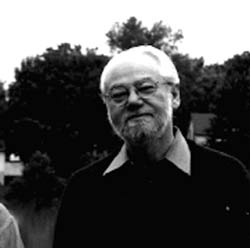DominionSections
Browse Articles
- IndependentMedia.ca
- MostlyWater.org
- Seven Oaks
- BASICS Newsletter
- Siafu
- Briarpatch Magazine
- The Leveller
- Groundwire
- Redwire Magazine
- Canadian Dimension
- CKDU News Collective
- Common Ground
- Shunpiking Magazine
- The Real News
- Our Times
- À babord !
- Blackfly Magazine
- Guerilla News Network
- The Other Side
- The Sunday Independent
- Vive le Canada
- Elements
- ACTivist Magazine
- The Tyee
- TML Daily
- New Socialist
- Relay (Socialist Project)
- Socialist Worker
- Socialist Action
- Rabble.ca
- Straight Goods
- Alternatives Journal
- This Magazine
- Dialogue Magazine
- Orato
- Rebel Youth
- NB Media Co-op
Radio
Riding the Aesthetic Underground
July 11, 2003
Riding the Aesthetic Underground
There's nothing that makes the critics line up -- nothing that makes them side and spit -- like the publication of a new book of non-fiction by John Metcalf. In the Calgary weekly FFWD, Lee Shedden writes: 'The release ... should be a Canadian national holiday; there should be drunkenness, jubilation, public nudity, mariachi bands, streamers, confetti.' Meanwhile, in The Danforth Review, Gordon Phinn calls Metcalf a 'rabid bulldog', and threatens to do unsavoury things to his 'balls'.

John Metcalf: reviewers fuss over the man, not the work. photo by John Haney
This problem is exacerbated by the genre of An Aesthetic Underground. When a critic reviews a memoir, she's inevitably tempted not just to review the author's presentation of his life, but to re-present that life in her own terms. Thus Judy Stoffman of The Toronto Star casts Metcalf, in Jekyll-and-Hyde fashion, as both 'tireless worker' and 'vociferous complainer'. Shane Neilson of The Danforth Review presents him in imperial terms: 'He arrived ready to establish himself on these shores, such as he found them, and he mostly found them lacking.' And George Fetherling, in The Vancouver Sun, calls An Aesthetic Underground 'an immigration narrative, pure and simple'.
Not that the revisionist-biographer approach can't be helpful. Writing -- strangely -- in Toro, a new Toronto 'men's magazine', Jeet Heer puts Metcalf's literary pugilism into perspective:
The British literary culture of the 1950s [in which Metcalf came of age] was ... a contentious place. In order to win a hearing for controversial writers such as Eliot, the critics F. R. Leavis and William Empson and their contemporaries had developed a combative public presence.... Metcalf's literary mentors believed that literature thrives on debate and argument, a position he continues to hold to this day.
Still, it's a shame that Metcalf's person has obscured his prose, because his real skill lies not in throwing a punch but in turning a phrase.
Metcalf writes, 'I find that I often catch in fiction the essence of a place better than I do in exposition, probably because exposition is closer to reportage and fiction is a distillation.' If, as Walter Pater wrote, art 'aspires towards the condition of music', then memoir, for Metcalf, aspires towards the condition of fiction. Sometimes, Metcalf throws off the cloak of fact entirely and quotes from his published stories to illuminate an era in his life. But the best parts of An Aesthetic Underground come when he resists the temptation to defer to earlier efforts and hangs onto the thread of his narrative, pushing the writing, as he would put it, to perform.
These moments are brilliant -- and rare. An Aesthetic Underground reads more like a curated exhibit of a life than like a narration of one. But I suspect that's what Metcalf had in mind. Metcalf once wrote to me of the importance of having frameworks for my reading -- that the books I encountered wouldn't make real sense to me if I didn't understand the context from which they emerged. In An Aesthetic Underground, Metcalf is trying to give us a context for his own work -- not just his writing, but his editing, his anthologizing, and his correspondence.
Like any good curator, of course, he digresses, pausing to impart a bit of gossip or whimsy, spicing the historically significant with the genuinely weird. Thus we get the stories of Metcalf's four adopted children, of Al Purdy's drinking, of Alice Munro's opinions on the blues. But the real scoop in An Aesthetic Underground is not that Purdy slept with so-and-so or that Munro said such-and-such about Howlin' Wolf. It is that Metcalf is working on a new book of fiction, a collection of stories about Robert Forde. Metcalf writes that 'Forde is a novelist and quite a few people have assumed he's an alter ego. There's a germ of truth in that but these Forde stories are not autobiographical in the usual sense.' For my part, I have no doubt that the Forde stories are pure fiction -- fiction being where a writer is freed, to take his best run at the truth.
Related articles:
By the same author:
Archived Site
The Dominion is a monthly paper published by an incipient network of independent journalists in Canada. It aims to provide accurate, critical coverage that is accountable to its readers and the subjects it tackles. Taking its name from Canada's official status as both a colony and a colonial force, the Dominion examines politics, culture and daily life with a view to understanding the exercise of power.